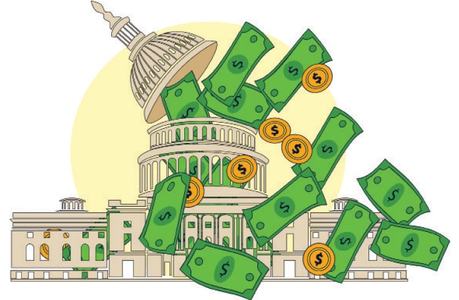ISLAMABAD: Pakistan is all set to achieve some major goals including fiscal sustainability under the Extended Fund Facility (EFF), International Monetary Fund (IMF) Country Representative Teresa Daban Sanchez said on Wednesday.
Speaking at a webinar at the Sustainable Development Policy Institute (SDPI), Ms Sanchez said it is being achieved through the strategy by removing exemptions and privileges, enhancing social and productive spending, coordination with provinces, and elimination of quasi-fiscal circular debt and losses of state-owned enterprises (SOEs).
The IMF representative emphasised that these goals are very important for the future direction of the country and include a market determined and flexible exchange rate as well as an independent central bank with a primary focus on price stability.
Moreover, strengthening of social safety net to protect the most vulnerable is a key requirement in addition to strengthening institutions and bringing reforms, especially in the areas of public finance management, central bank’s autonomy, tax policy and administration, energy sector, SOEs administration and FATF etc, she added.
In her remarks, the IMF official said that pre-Covid. the economy was on the track with 2.4 per cent growth rate till March 2020. However, after May 2020, it witnessed a decline by 1.5pc as resources were diverted towards Covid-19 mitigation and containment, she added.
The IMF representative further said that Pakistan received $1.4 billion funds from IMF (Rapid Financial Instrument) in April 2020 and also from World Band and Asia Bank on the basis of multilateral area to mitigate this challenge.
“In the current situation and amid the third wave of the pandemic, growth is projected at 1.5pc of the GDP and inflation will remain volatile,” Ms Sanchez said. The monetary policy is accommodative and fiscal policy is prudent but the public debt guarantees have increased to 92.8pc GDP, she noted.
She emphasised that a recalibration of policies and reforms as well as increase in revenue collection, ambitious tax policy reforms and broad base fiscal structural reforms are the need of hour.
In the energy and gas sector, a recalibration of the Circular Debt Management Plan (CDMP) which includes short and medium-term measure like increasing revenue by aligning power tariff with cost recovery levels, reducing generations costs, streamlining fiscal impact would be important stet.
“Although, the Covid-19 shock temporarily suspended the progress of EFF, but the authorities remained committed to the ambitious policy actions and structural reforms to strengthen economic resilience, advance sustainable growth and achieve the EFF medium-term objectives,” she added.
In response to several questions by the audience, Ms Sanchez said that the duration and size of the EFF programme will be the same, even after the third wave of Covid-19. It will focus on the collaboration and to improve the economy of the institution in the country, she said.
She further added that these programs are aimed for enhancing the performance of regulatory institutions like Nepra so to keep a fiscal discipline.
The IMF official was of the view that policies need to be adjusted with reality and if there is any need in the third wave, then the program will be adjusted accordingly as the package is not a straightjacketed.
About the autonomy of regulators and a perception that these are being compromised under the IMF programme, she reiterated that all reforms that have been recommended were long due and are necessary for the help of the poor and vulnerable.
She explained that the IMF cannot dictate the country’s legislation and the institution but just play an advisory role upon a request.
She was on the view that a change or transition in the ministers or authorities does not affect our role and commitment with the people of Pakistan.
On tax reforms, she said that the tax policy reform needs to be very comprehensive. The corporate income tax and person income tax both need to be made sure in the country, she said. While commenting on circular debt, Ms Sanchez said that the debt sustainability is the main role of IMF in any country and with right policies and improved management, countries can better manage their debt profile. “ Pakistan is doing well in this area of the programme. The SOEs management is the major component for the betterment of the country,” she added.
Published in Dawn, April 15th, 2021














































